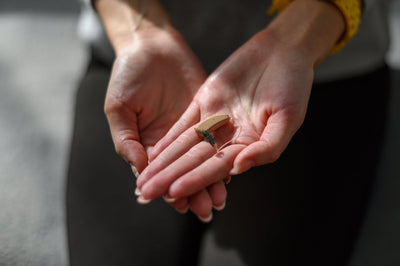What To Do When Hearing Aids Get Wet
Can hearing aids get wet?
If you're caught in the rain with your hearing aids, or if they get splashed while you're swimming, don't panic. Most hearing aids are designed to withstand a little moisture. But it's still important to take care of them after they've been exposed to water.
Here are a few things you can do to protect your hearing aids:
-Remove the batteries and open up the battery compartment to let the hearing aid air dry.
-Use a soft, dry cloth to wipe down the rest of the hearing aid.
-If you have a dehumidifier, put your hearing aids in it overnight so they can dry completely.
-If your hearing aids came with a drying kit, use that according to the manufacturer's instructions.
What happens when hearing aids get wet
When hearing aids get wet, it is important to dry them off as soon as possible. There are a few different ways to do this, but the most important thing is to make sure that all of the moisture is removed. Hearing aids can be dried with a soft cloth, by using a hair dryer on the low setting, or by placing them in a container of uncooked rice.
If your hearing aid gets wet and you cannot remove all of the moisture, you may need to replace it. This is because water can damage the internal components of hearing aids and cause them to stop working. If you are not sure whether or not your hearing aid is still covered by warranty, please contact your audiologist or hearing aid provider for more information.
Can wet hearing aids be repaired?
If you've ever accidentally dropped your hearing aid in water, you know the sinking feeling that comes with it. Whether it falls in a sink full of soapy water or takes an unexpected dip in a puddle, a wet hearing aid is not a happy hearing aid.
So, what can you do when your hearing aid gets wet? The good news is that most modern hearing aids are pretty resilient and can withstand being submerged for short periods of time. The key is to act fast.
If your hearing aid does take an accidental swim, the first thing you should do is remove the batteries and open up the casing if possible. This will help to expel any water that may have made its way inside the device. Once you've done that, gently pat the hearing aid dry with a soft cloth or towel.
How to dry out wet hearing aids
If your hearing aids get wet, there are a few things you can do to try and dry them out. remove the batteries and any wax guards or other accessories. Wipe down the devices with a soft, dry cloth. If possible, open up the hearing aids so that air can circulate inside them. You can also try using a hairdryer on the lowest setting to help dry them out. Once they seem to be mostly dry, put fresh batteries in and see if they're still working properly. If not, contact your audiologist for further assistance.
How to fix a hearing aid that got wet
If your hearing aid gets wet, there are a few things you can do to try to fix it. First, take the batteries out and dry the hearing aid off with a soft cloth. If possible, open up the hearing aid so that it can air out and dry completely. Once it is dry, you can put new batteries in and see if it works. If it does not work, or if you are not comfortable doing this yourself, you can take it to an audiologist or hearing aid specialist to have them look at it.
Additionally there are a few steps you can follow:
- Step 1: remove the batteries
- Step 2: blot the excess moisture
- Step 3: air dry or use a drying kit
- Step 4: check for damage
Preventing water damage to your hearing aid
If you're like most people, you probably don't think much about your hearing aids until they stop working. But taking a few simple steps to protect them from water damage can help extend their lifespan and keep them working properly.
Here are a few tips to prevent water damage to your hearing aids:
1. Remove them before swimming or showering. This is especially important if you're using in-ear hearing aids, which can easily become clogged with water.
2. Avoid exposing them to extreme temperatures. Don't leave them in the car on hot days or in cold climates for too long, as this can damage the delicate components inside.
3. Keep them clean and dry. Regularly cleaning your hearing aids with a soft, dry cloth will help remove earwax and other debris that can build up and cause problems.
Related Articles



